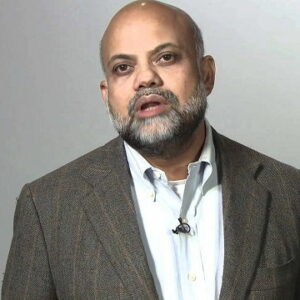Gonofone and Grameenphone were founded by Iqbal Z. Quadir. He realized the need for better communication between citizens and producers of products and services as a result of his background as a poor youth in rural Bangladesh. Before developing Gonofone and Grameenphone, he earned two master’s degrees from the University of Pennsylvania and worked for a number of international financial firms. Quadir employed mobile devices to offer a nationwide communication infrastructure to the people of Bangladesh through Grameenphone. Quadir has taught at the Massachusetts Institute of Technology and Harvard University. He founded the Legatum Center for Development and Entrepreneurship at MIT. He established a number of charities to help the needy in rural areas of third-world countries, one of which supported an essay competition that resulted in the development of a technology for removing arsenic from water and soil. Financial aid from first-world countries typically fails developing countries in the long run because it serves as a crutch rather than a solution to the difficulties that the country’s inhabitants face. Quadir’s initiatives to empower the poor have enabled millions of people to earn more money, allowing them to provide basic necessities for their families.
Childhood and Adolescence
Iqubal Quadir was born on August 13, 1958, in Narail, Jessore, Bangladesh, to lawyer Anwarul Quadir. Kamal and Khalid Quadir, two of his siblings, are pioneers in the finance and public service sectors. He attended Jhenidah Cadet College, a military boarding school in Jhenidah, Bangladesh, for secondary school. After their father died in 1972, Quadir and his siblings went to the United States to further their schooling.
Career of Iqbal Quadir
He earned a Bachelors of Science degree with honors from Swarthmore College in Pennsylvania in 1981. He got Master of Arts and Master of Business Administration degrees from the University of Pennsylvania’s Wharton School between 1983 and 1987.
From 1983 to 1993, he worked his way up through the financial business world, starting as a consultant for the World Bank and eventually becoming vice president of Atrium Capital Corporation. Quadir established Grameenphone in 1997 in collaboration with GrameenBank, providing Bangladeshis with their first national communication infrastructure.
From 2001 to 2005, he was a fellow at Harvard University’s Mossavar-Rahmani Center for Business and Government, where he taught graduate courses on technology’s impact on poor countries. Quadir transferred to the Massachusetts Institute of Technology, where he founded the Legatum Center for Development and Entrepreneurship and served as its director.
In 2006, he co-founded Innovations, a publication that chronicles significant donations. He founded Emergence Bio-Energy Incorporated to build tiny power plants in rural Bangladesh, where 70% of the population lacks access to the national electrical grid. Money in Motion is a mobile-based financial solution launched by Quadir in 2010.
One of Quadir’s most recent efforts, CleanWater, focuses on eliminating arsenic from drinking water using a chemical preparation rather than costly equipment. Another innovation, CellBazaar, works in a similar way to Craigslist in that it connects potential sellers with buyers via text messaging.
Major Projects of Iqbal Quadir
In 2004, he founded the Anwarul Quadir Foundation to promote modernity in Bangladesh. The club organized an essay contest in the hopes of inspiring one of its members to develop a method for extracting arsenic from water and soil.
Achievements & Awards
In 1999, the World Economic Forum named him a Global Leader of Tomorrow for his unique leadership style to broadening horizons for Bangladeshis. Quadir earned the Rotary Club of Metropolitan Dhaka’s 2006 Science, Education, and Economic Development Award for bringing telephone service to Bangladeshis. His graduation alma mater named him one of the 125 Most Influential People and Ideas in 2007.
Personal History and Legacy
Quadir’s efforts in the founding of Grameenphone gained international exposure to the idea that investments in poor countries that establish industry result in large-scale transformation for the inhabitants. He is a member of the World Wide Web Foundation’s board of directors, which promotes affordable and unfiltered internet access.
Quadir also serves on the board of the Global Fairness Initiative, which works to help the working poor develop economically. Iqbal Quadir has been able to continue growing entrepreneurial development initiatives in low-income nations thanks to his work at the Legatum Center.
Estimated Net Worth
Iqbal Quadir is one of the wealthiest and most well-known entrepreneurs in the world. Iqbal Quadir’s net worth is estimated to be around $47 billion, according to Wikipedia, Forbes, and Business Insider.
Trivia
He is credited with being one of the first pioneers to anticipate the potential impact of mobile technology on developing countries.
Many publications have cited his revolutionary economic strategy, which was mostly based on Nicholas Sullivan’s book ‘You Can Hear Me Now.’


